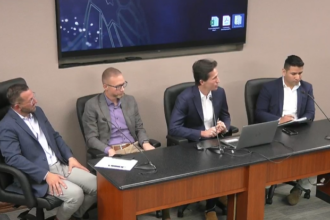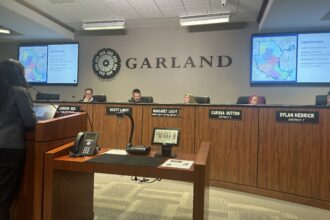Garland, TX — As Garland residents engage in discussions about the upcoming mayoral runoff election, confusion has arisen regarding the structure of the city’s governance. Understanding the differences between the council-manager and mayor-council systems of municipal administration can provide clarity.
Council-Manager System
Garland operates under a council-manager system, where the city council appoints a city manager to oversee daily operations. In this model:
- Authority: The city manager has the legal authority to hire and fire city employees, allowing for a professional management structure focused on efficiency and expertise.
- Role of the Council: The city council serves as the legislative body, setting policies and goals, while the city manager handles administration. This separation of powers enhances operational effectiveness.
Positives of the Council-Manager System
- Professional Management: The city manager is typically a trained professional, leading to more effective governance and improved city services.
- Stability: With a manager not subject to electoral cycles, the city can pursue long-term goals without the distractions of political campaigns.
- Efficiency: Decision-making is streamlined, allowing for quicker responses to community needs.
Mayor-Council System
In contrast, a mayor-council system features a mayor with varying degrees of executive power, depending on the specific structure:
- Authority: The city council collectively holds the power to hire and fire employees, which can politicize administrative decisions.
- Role of the Mayor: The mayor often serves as the chief executive officer, with powers that can range from significant to limited based on whether the system is “strong” or “weak.”
Concerns with the Mayor-Council System
- Political Influence: The potential for politicization in hiring and firing can lead to instability and inefficiency.
- Lack of Professional Management: Without a trained city manager, the administration may struggle to effectively govern.
Confusion Among Residents
As the mayoral runoff election approaches, some Garland residents have expressed confusion regarding candidates’ comments about the nature of the mayoral role. Statements about the distinctions between a full-time and part-time mayor have raised questions about how these roles fit into Garland’s existing council-manager structure. It may be that a candidate is suggesting they will be more available to constituents throughout the day, but that availability would not necessarily reshape city governance without it going to a vote with a special election. In Texas, a city can transition from a council-manager to a mayor-council system by initiating a special election through a petition signed by a certain percentage of voters. This petition must be submitted to the city clerk and signed by at least 20% of the qualified voters who voted for mayor in the most recent election. The mayor then issues a proclamation ordering the election.
Garland’s council-manager system effectively positions the city manager as the CEO of the city, promoting professional management and stability.





